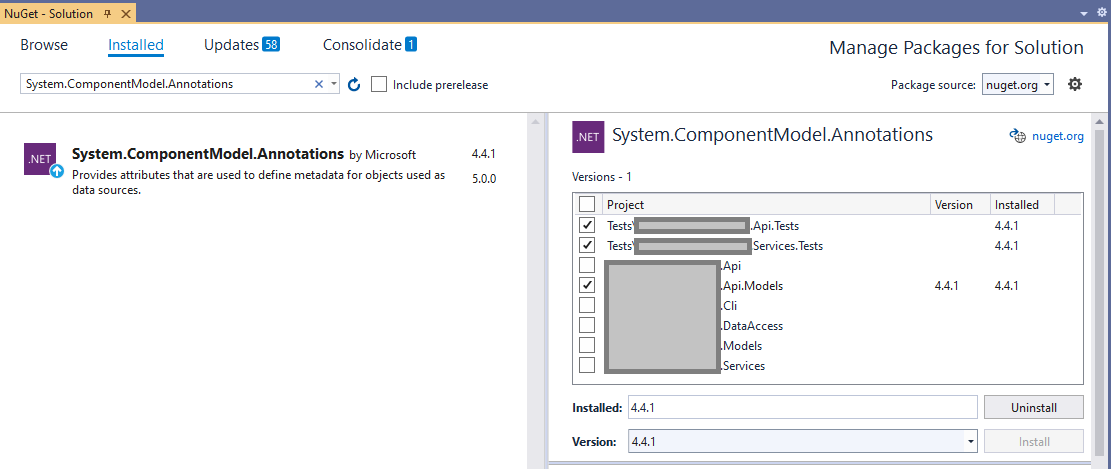I have a .NET Standard 1.4 class library that references the System.ComponentModel.Annotations (4.3.0) NuGet package.
I'm then referencing this class library from a .NET Framework 4.6.2 test project. It builds fine, but at runtime I get the following error:
System.IO.FileLoadException occurred HResult=0x80131040
Message=Could not load file or assembly 'System.ComponentModel.Annotations, Version=4.1.0.0, Culture=neutral, PublicKeyToken=b03f5f7f11d50a3a' or one of its dependencies. The located assembly's manifest definition does not match the assembly reference. (Exception from HRESULT: 0x80131040)
I tried adding a reference to the System.ComponentModel.Annotations (4.3.0) NuGet package from the net462 project, but that didn't make any difference.
I tried adding a reference to the .NET Standard library from the net462 project, but still no luck.
Am I missing something here? Is this a known bug, if so is there a work around?
Any help is much appreciated!


<bindingRedirect oldVersion="0.0.0.0-4.2.0.0" newVersion="4.2.1.0" />which fixed the problem. – Donato